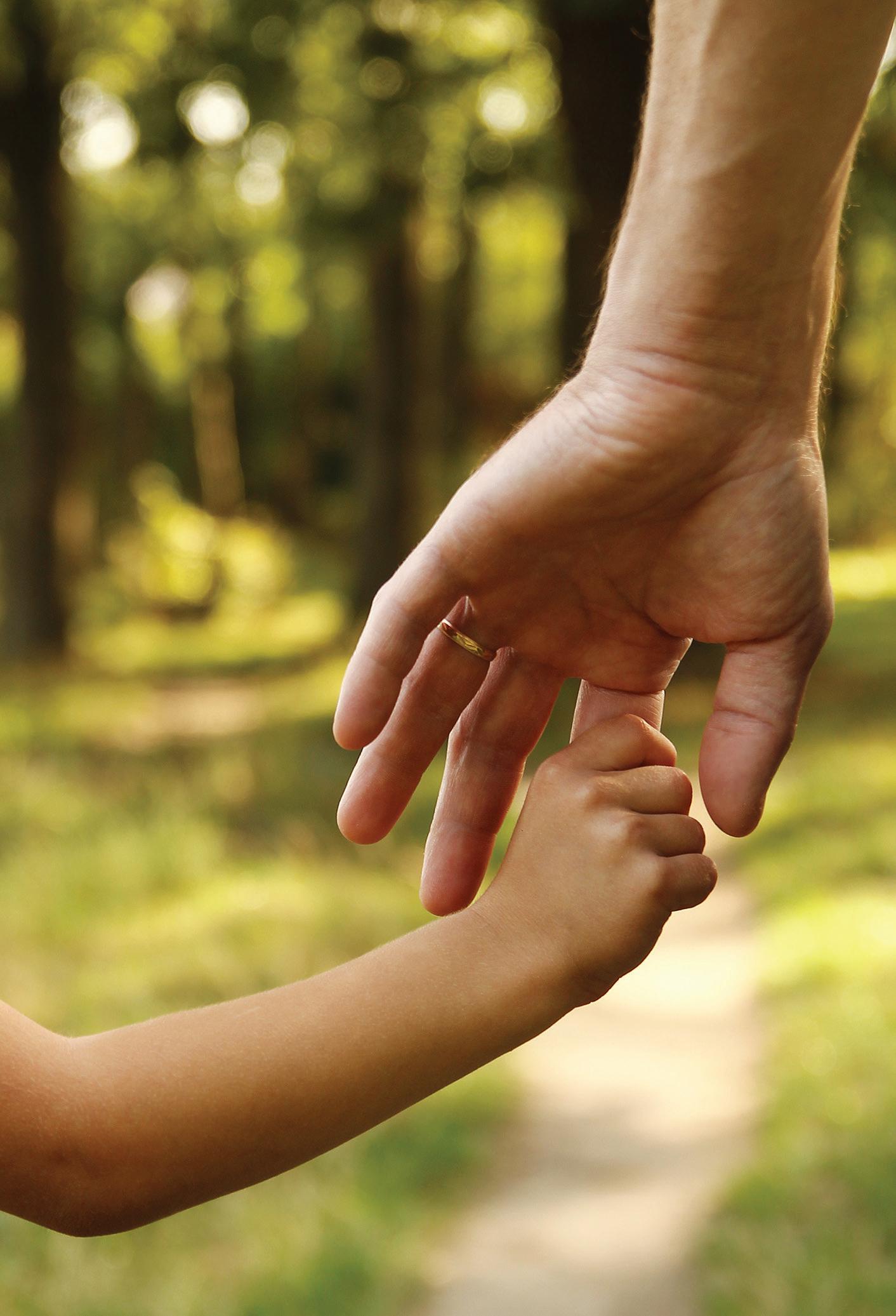






Article 01

Staci’s commitment to her students, even as she battled illness, led her parents to launch an Atlanta metro chapter of Backpack Buddies — a nonprofit that provides six nutritious meals to kids who are food insecure over the weekend.

Untreated cataracts are the leading cause of preventable blindness in Ethiopia, where 1% of the population is blind.
When Marc Lewyn’s father, Bert, passed away in 2016, and the family was observing shiva, a friend, asked somewhat bluntly, “How do you plan to permanently memorialize your father?”


Sheryl Arno was the first Co-Chairperson of Jewish Abilities Atlanta (JAA), a targeted philanthropy within Federation that supports individuals with disabilities and their families.
Welcome to the inaugural issue of Generosity Magazine. Generosity highlights the stories of people with a connection to Jewish Atlanta who work to make the world a better place—whether by donating their time, their treasure, their expertise, or their kindness. Federation is the philanthropic first responder for Atlanta’s Jewish community; when a person, family, or group is in need, Federation’s network steps in to provide. Children, families, Holocaust survivors, people with disabilities, entrepreneurs, and young adults come to Federation for help. And for every person in our community who needs a hand, there are many more who are waiting to lend one. These are their stories.

Galen Crawley is a writer and artist from Snellville, Georgia. She has written for small businesses and large brands across the country. She is thrilled to bring her experience to the Jewish Federation of Greater Atlanta.
Nina Rubin is a freelance writer, based in Atlanta. She is a storyteller and digital content creator who loves to share stories of generosity.
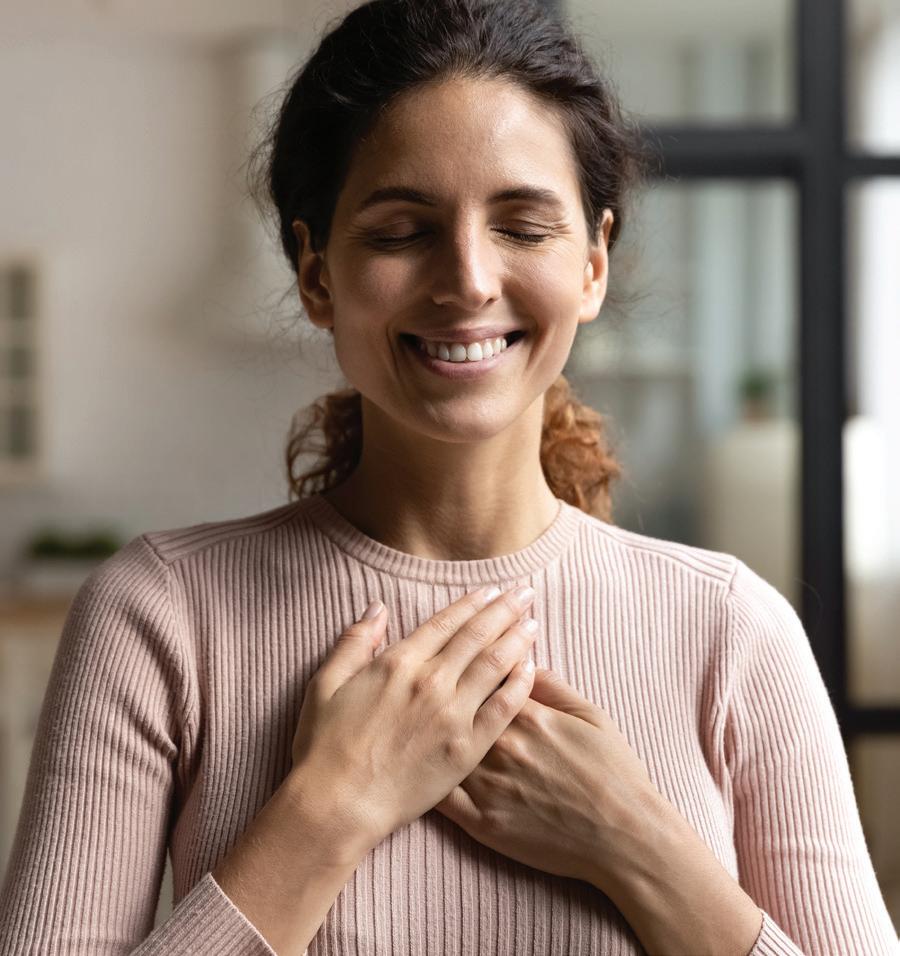
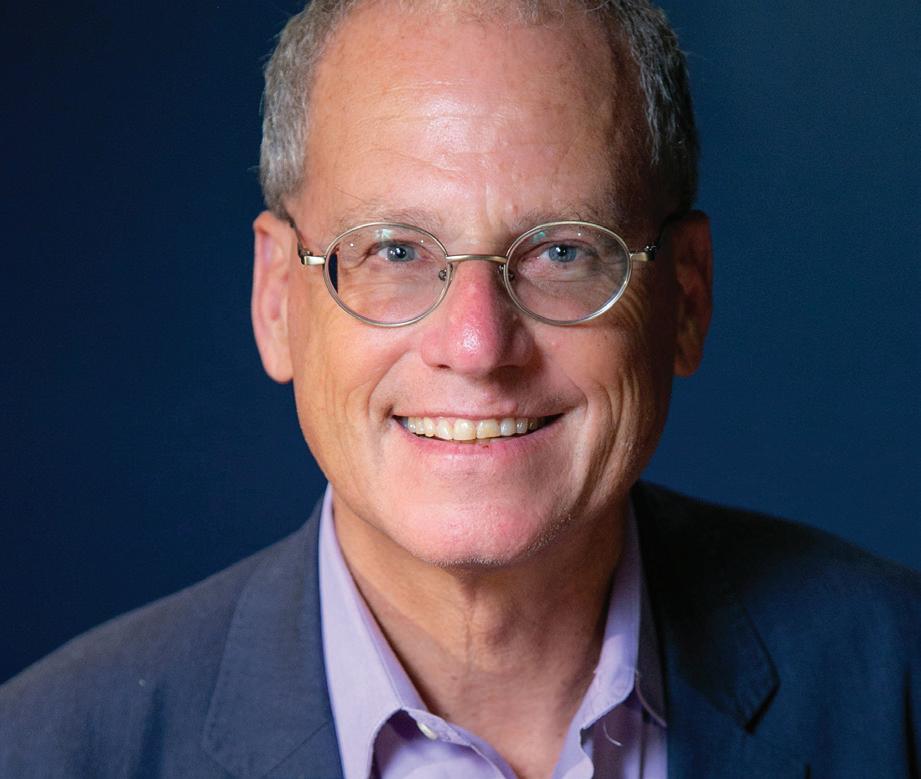
It’s easy to be cynical. Cynicism isn’t complicated—all you have to do is poke holes, ask questions. You can do it from an arm’s length, without investing too much of yourself. When all else fails, roll your eyes and shrug your shoulders and walk away.

Being generous isn’t nearly as easy because generosity involves some optimism. To help another person, you have to believe things can improve, that you can make a difference. Generosity might mean putting someone else’s needs before your desires, and that takes sacrifice.
In our first issue of Generosity, you’ll find stories of people who made hard choices: volunteering instead of vacationing, continuing a loved one’s legacy after her untimely passing and donating family keepsakes for posterity.
Jewish Atlanta is filled with people who make these kinds of choices everyday, and we are thrilled to share them with you in this new quarterly magazine. I hope you are as inspired by their stories as I am.
With thanks, Eric M. Robbins
President and CEO, Jewish Federation of Greater Atlanta

Katz, CFP® and
and The Jewish Federation of Greater Atlanta's efforts to amplify and showcase our community's stories of Generosity.
We can help you make it happen.
are proud to support this inaugural issue of Generosity Magazine www. l i neaweal t h. com
Securities offered through LPL Financial, member FINRA/SIPC Advisory services offered through IFG Advisory, LLC, a registered investment advisor Linea Private Wealth Management, Integrated Financial Group, and IFG Advisory, LLC are separate entities from LPL Financial Tracking # 381843


Staci Robbins was a beloved elementary school teacher in DeKalb County whose life ended far too soon. “Staci taught in a Title I school with a 93 percent Hispanic population. "She was fluent in Spanish and utterly devoted to her kids," her father Ron said. "She was named teacher of the year at Montclair Elementary School in DeKalb County."
Backpack Buddies in Atlanta Staci’s commitment to her students, even as she battled illness, led her parents to launch an Atlanta metro chapter of Backpack Buddies — a nonprofit that provides six nutritious meals to kids who are food insecure over
the weekend. Backpack Buddies is one of several national programs providing much needed weekend nutrition to vulnerable families and children.

A 2021 study in the Economics of Education Review, provides evidence that weekend food programs like Backpack Buddies have a positive effect on academic performance in the form of increased reading test scores, and suggestive evidence they also raise math scores. The effects appear strongest for the youngest and lowest performing students.
“Our daughter had many students who received free and reduced lunch at school but were not eating well over the weekend. Staci knew firsthand about kids who took turns eating over the weekend because there wasn’t enough food at home. She understood that kids who eat poorly or come in hungry on Monday mornings are not primed to learn,” Samra Robbins said.
Backpack Buddies is a nonprofit that provides six nutritious meals to kids who are food insecure over the weekend.
Though they lived in Savannah, GA, Ron and Samra Robbins moved back to Atlanta in 2017 as Staci’s illness progressed. “Even when she was on dialysis, she remained a fierce advocate for her kids and for Backpack Buddies. We established Backpack Buddies of Metro Atlanta in Staci’s memory. It has grown beyond our wildest dreams and has become a meaningful mitzvah in her memory,” her parents said.
They started small at Congregation Beth Shalom where a group of volunteers gathered weekly to pack shelf-stable food items in backpacks that were discretely distributed to 10 kids at nearby Kingsley Elementary School in Dunwoody. Though Kingsley was perceived as an “affluent” school, there was a need. The extent of food insecurity in suburban schools was eye-opening.
Jonathan Halitsky, who is now Backpack Buddies Director of Operations and its only paid staff member, underscores the dimension of the problem. “One in six children in Georgia are hungry. “There is hunger in virtually every public school in the metro area.”
As Ron and Samra became cheerleaders for Backpack Buddies in Atlanta, they reached out to churches, school groups, and synagogues to grow the volunteer base. “It was a tremendous service opportunity. High school students and bar/bat mitzvah kids got involved. The phone rang and rang as organizations asked how to get involved and became our community partners. Today the program works with 25 partner organizations.
At first, each organization purchased its own food, packed bags, and delivered to local schools. Terri Bagen, a volunteer, described what happened as Backpack Buddies took off. “Ron had the idea that Backpack Buddies should cultivate new sources of food donation. He developed relationships with local food banks so Backpack Buddies could receive shelf-stable food donations. Thanks to several angels in the community Backpack Buddies became
“One in six children in Georgia are hungry. There is hunger in virtually every public school in the metro area.”
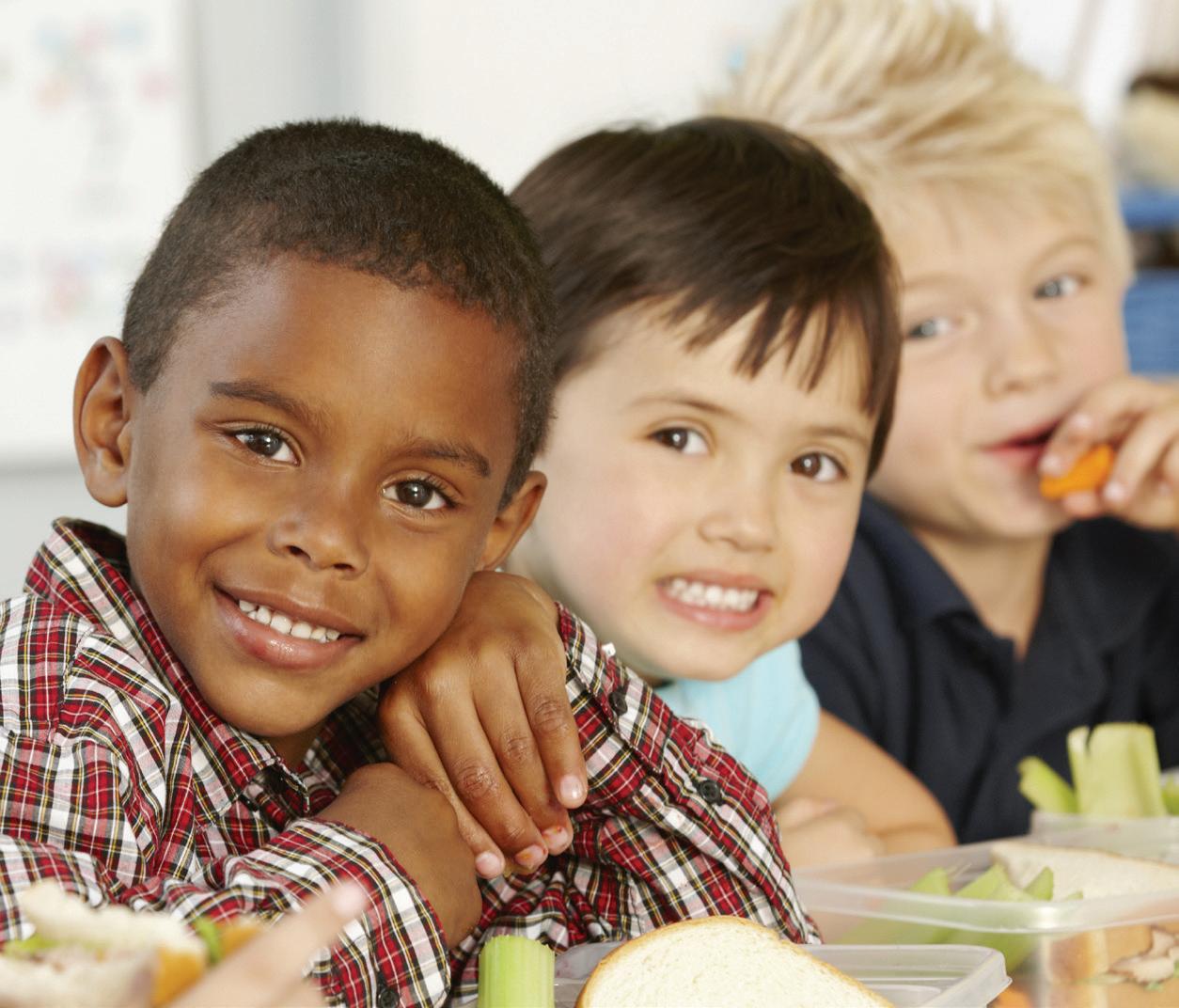
Each student’s weekend bag consists of five proteins, two vegetables, two cereals, two fruits, three snacks and two juices.
a 501c3 in order to receive charitable and food donations. Debbie Levinson, who manages the Helen Marie Stern Fund, was an early funder. Eventually, as space for bulk food storage became a challenge, realtor Debbie Sonenshine found an affordable 2,000 square foot space in a strip mall that hadn’t been rented in seven years.
The pandemic threw the organization some curveballs, but by spring of the 21-22 school year, Backpack Buddies and its Community Partners were processing and packing 6-8 weeks’ worth of food supplies. “We took last summer to really ramp up and acquire more food, refine our operations, and train Community Buddies on the distribution system. Digital ordering means that organizations can choose the most convenient pickup times. Each student’s weekend bag consists of five proteins, two vegetables, two cereals, two fruits, three snacks and two juices. There is no charge for the food, and all items are purchased by Backpack Buddies or donated by charitable food sources. The offerings are varied and include tuna, chicken, ravioli and macaroni and cheese.
Toward the end of the last school year, Backpack Buddies served 800 children a week, and this school year nearly 1250-1500 children a week receive food. “We’d love to be at 2,000 children a week,” Jonathan Halitsky says with pride. “This will require more donations and an expanded Backpack Buddies partner network.”
Now that Backpack Buddies provides its partners with all the food and has perfected its order and delivery system, we are running on a pure donation model. This makes it possible for any school with a need to get involved, and any organization that wants to volunteer, to help. We can’t eradicate hunger, but we’re addressing children’s weekend needs in an efficient and targeted way.”
Staci Robbins would be proud!
To make a donation to Backpack Buddies, click here.
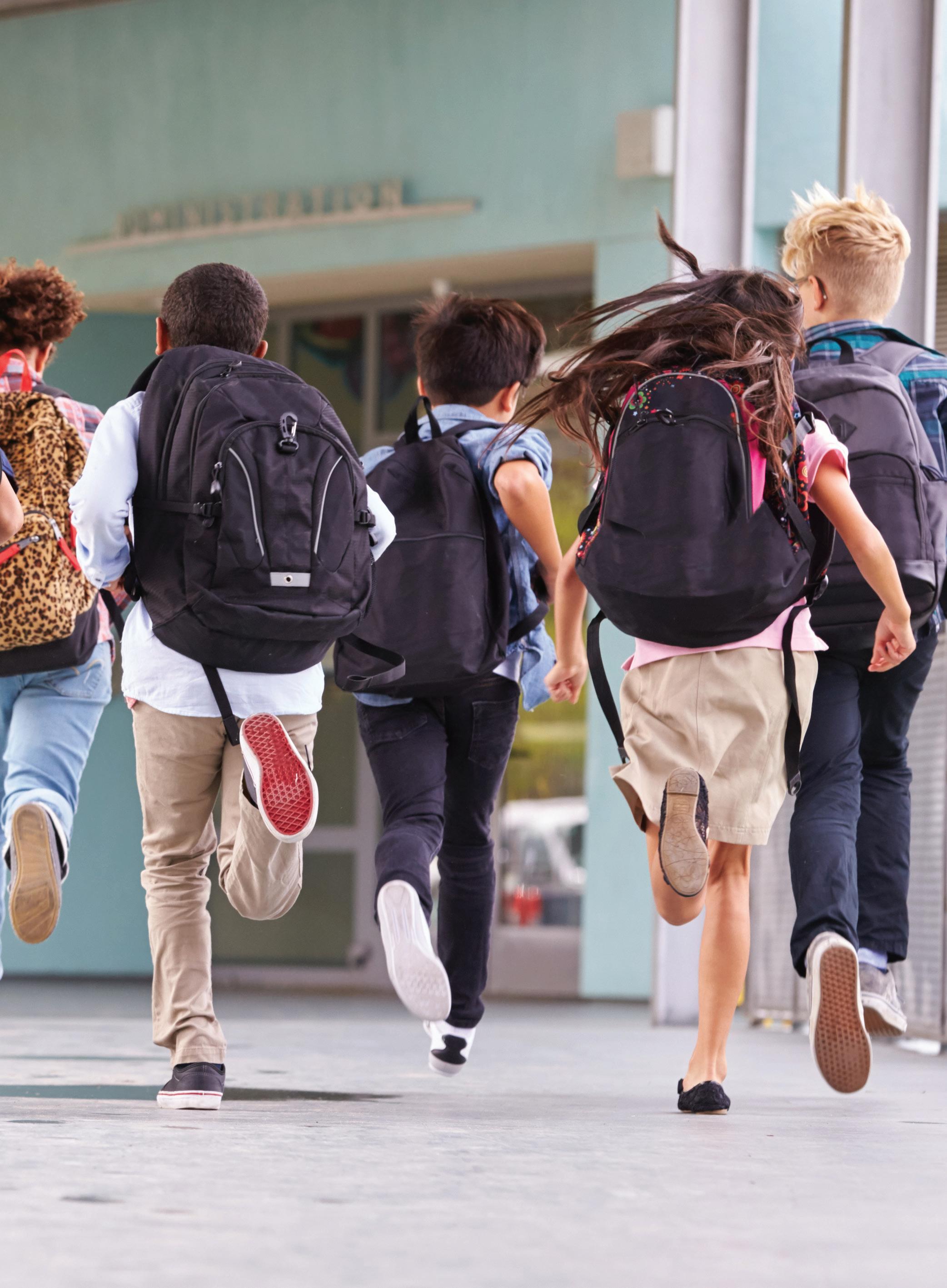

“We’d love to be at 2,000 children a week. This will require more donations and an expanded Backpack Buddies partner network.”
We can’t eradicate hunger, but we’re addressing children’s weekend needs in an e cient and targeted way.
„
Morris and Elisa Hartstein founded Operation Ethiopia to help bring eye care to a population badly in need of medical intervention.

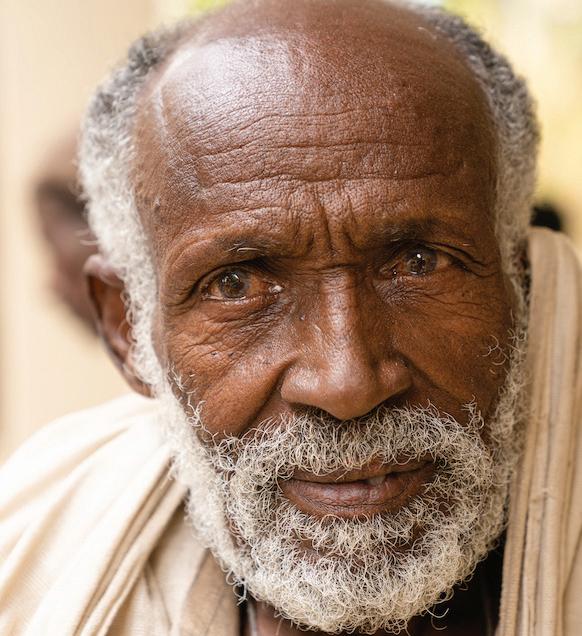
This past August, Dr. Morris Hartstein, his wife Elisa Minsk Hartstein, their son Jonah, and six other volunteers were preparing for a trip to Ethiopia—their third in 2022. “Next year we have four medical missions planned,” Morris said.
Morris is an Ophthalmologist who moved to Israel with his family in 2004, and he was prepping for an extremely busy week. Between August 28 and September 2, he and his team (including an eye surgeon and three EMTs) would collectively be operating on 15 patients needing complex oculoplastic surgery, running mobile eye clinics in rural villages, overseeing a cataract campaign funded by their organization where 291 patients would receive sightrestoring cataract surgery, and running first-aid training for local medical staff.
Morris and Elisa Hartstein founded Operation Ethiopia to help bring eye care to a population badly in need of medical intervention.
In 2014, the Hartstein children were between the ages of 11 and 16. They and their parents, wanted to do something
meaningful with their summer, rather than take a typical family vacation. They decided to volunteer at the Jewish compound in Gondar, in Ethiopia. About 85% of the Jewish population in Ethiopia lives in Gondar, in conditions that were shocking to the Hartsteins.
“The families live in mud huts with no running water, no kitchens, no bathrooms, and the kids were visibly malnourished,” Elisa said. The family spent a week in Ethiopia, running activities for hundreds of children in the village and volunteering at the Mother Teresa orphanage in the city of Addis Abba.
Word got out that Morris was an eye doctor. “Most of the people in the Jewish community in Gondar had never been seen by a doctor before,” he said—let alone an eye doctor.
Morris immediately recognized that many in the village suffered from conditions that could be quickly and easily treated in the United States—like cataracts. Most cases of cataracts are caught and treated early here, before

The total loaded cost (including lens implants, medication, anesthesia, transportation, local sta salaries, equipment rental, food, etc.) per patient varies slightly by campaign depending on exchange rates, location and inflation, but is currently $65. Put in other terms, it costs $65 to literally help a blind person see again.
reaching advanced stages. But in Ethiopia, lack of access to medical care, and lack of funds to pay for surgery, means that people eventually become blind.
Morris did what he could for the patients he examined that week, but his whole family knew they had to do more.
For the Hartsteins, helping others really is a family affair. Elisa was born a second-generation Jewish Atlantan; she is a graduate of the Hebrew Academy and Yeshiva high school (now known collectively as the Atlanta Jewish Academy). Her parents, Betty and Malcolm Minsk, were stalwart supporters of Federation and other local Jewish organizations. She says that her family’s dedication to helping their community made a major impact on her life, and the work she and Morris do.
The Hartsteins returned home from Gondar and set to work—they purchased medications and eyeglasses using their own money. A year after their first trip to Ethiopia, they returned with 12 suitcases of supplies and set up their first mobile eye triage clinic in the Jewish compound of Gondar.
Over the next few years, the Hartsteins expanded their services beyond the
Jewish community to nearby villages. They partnered with Struggle to Save Ethiopian Jewry (SSEJ) to start a feeding program for malnourished children in the Jewish community. They connected with the University of Gondar Hospital and began working with their eye department. Morris started a doctor training program to bring Ethiopian ophthalmologists to his hospital in Israel for advanced specialized training.
Morris and Elisa officially incorporated Operation Ethiopia as a non-profit organization in Israel in June of this year, enabling them to bring more help to the people of Ethiopia on a larger scale.
In 2022, the American Academy of Ophthalmology awarded Morris the Outstanding Humanitarian Service Award, and in Israel he was awarded the Sylvan Adams Nefesh B’Nefesh Bonei Zion Prize for Global Impact.
Since 2014, Morris has volunteered his time to personally examine and treat nearly 7,000 patients through mobile eye clinics, performed complex oculoplastic surgeries in Gondar and in Addis Abba, and trained Ethiopian eye care professionals.
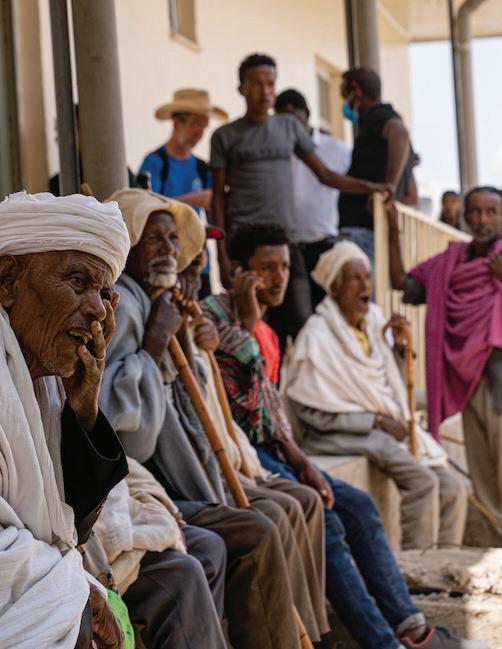 photo credit: Ori Aviram
photo credit: Ori Aviram

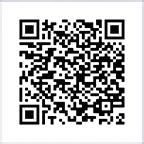
During a cataract campaign a high volume of surgeries are performed in a short time in an area where there is otherwise little to no access to surgery. Operation Ethiopia’s August trip was focused in the area around Gondar.
• August 3: Screenings begin in the surrounding villages
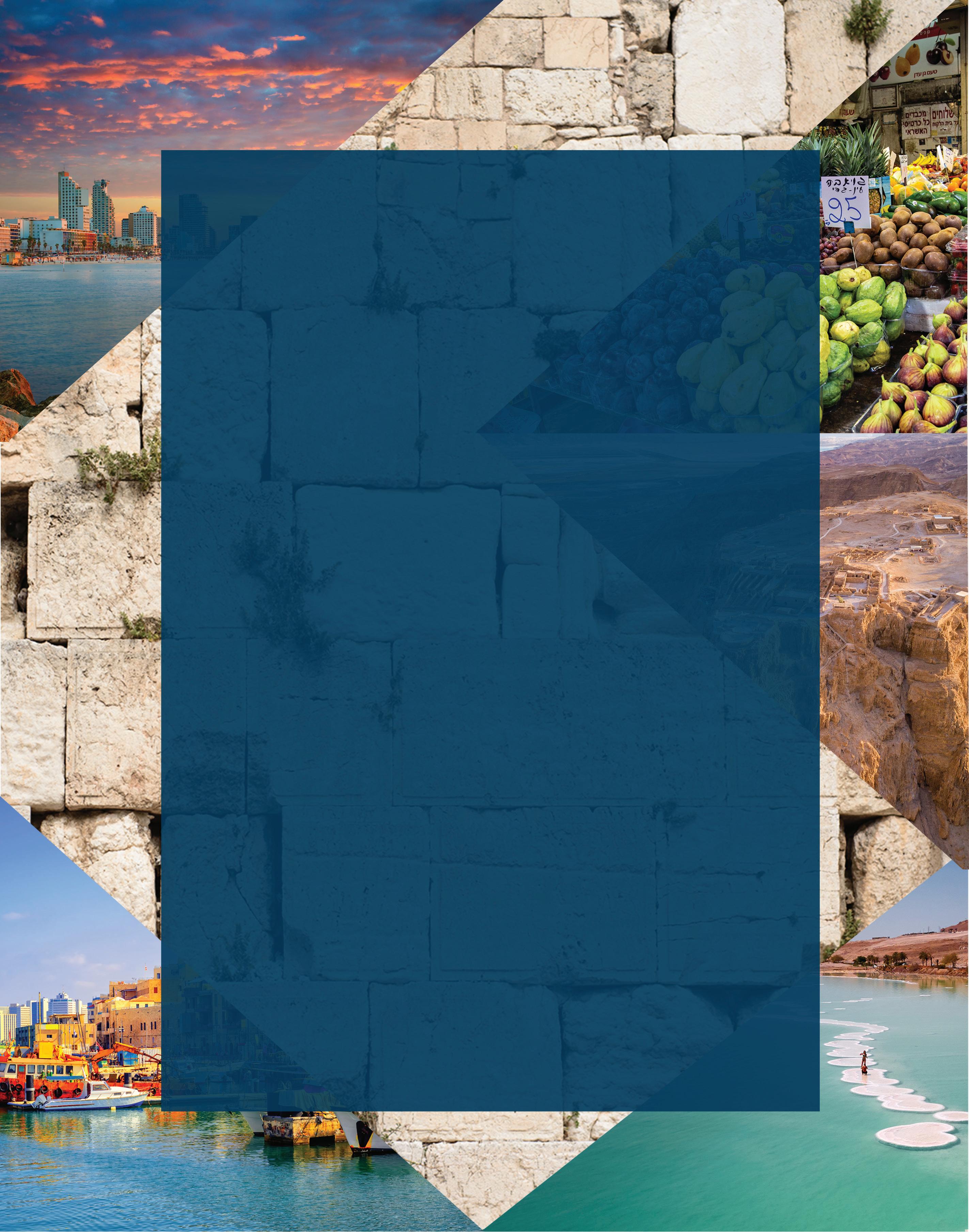
• News about the screenings circulates throughout the region through word-of-mouth, radio, and notices at local health clinics
• Those with the densest cataracts are assigned a day to come during the campaign
• August 28: Dr. Hartstein and Operation Ethiopia arrive
• September 2: In 6 days, Operation Ethiopia and their local team carry out the campaign, performing 291 sight-restoring surgeries
Patients who were legally blind before the surgery achieve significant visual improvement, with many reaching 20/20 vision.
eration Ethiopia has brought 18 Ethiopian eye doctors to Israel for advanced training. Morris is a specialist in oculoplastic surgery. One Ethiopian doctor has trained with him for a year; this one doctor has nearly 18 million people in his jurisdiction. Ethiopia has a population of nearly 110 million people, and yet there are only about 200 eye doctors in the entire country.
Morris marvels at the ingenuity of the doctors he has worked with in Gondar. He says “Western doctors tend to rely on expensive machinery for things like cataract surgeries, because it’s what they’re trained on, and what they’re used to. The Ethiopian doctors can do it without expensive equipment, and sometimes even without needing stitches.”
Besides cataracts, Ethiopia is #1 in the world for trachoma. If left untreated, this infection leads to scarring of the eyelids and corneas, and eventually blindness. It is treated with a surgery called TT, which Morris specializes in. He trains doctors in this surgery, as well as other advanced techniques.
Why are our Cataract Campaigns in Ethiopia so Important?
Hartstein and his team of volunteers have distributed thousands of units of eye medications and eyeglasses and led three cataract campaigns. Thanks to these efforts, 1,000 people have regained their eyesight.
One of Operation Ethiopia’s focuses is on training eyecare specialists; building an infrastructure of diverse eyecare professionals is crucial to their mission. So far, Op-
Operation Ethiopia takes volunteers with them on their trips, and Morris says, “You don’t need a medical background to volunteer.” In fact, some of their first volunteers were the friends of their teenage kids. They would help people check in, move supplies, and perform other tasks around the clinics.
Ethiopia has a population of nearly 110 million people, and yet there are only about 200 eye doctors in the entire country.
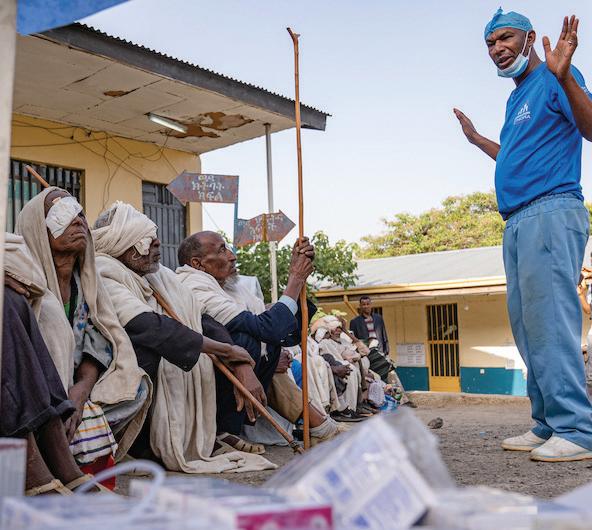
Elisa says “the people we treat are the poorest of the poor and have no access to eye doctors or eye care. Even the relatively ‘small’ amount of money that these exams and procedures cost is onerous.” She urges people who want to help to visit operationethiopia.com and donate—she says both money and services are needed.
Elisa says, “This project started out in the Jewish community and that is its focus, but ‘tikkun olam,’ means it is vital to help everyone, including people in nonJewish villages. We want to make life better for anyone who needs our help.”
To donate to Operation Ethiopia, click here.
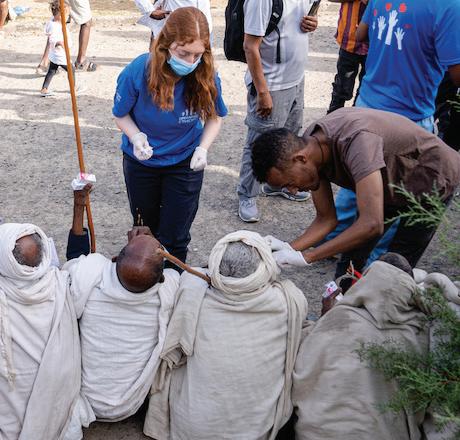




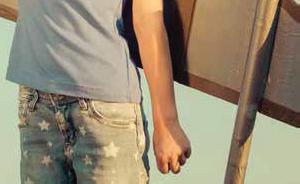

your children & g r andchildren will inher it .
The philanthropic choices you make today will echo across generations. When you invest your money through Atlanta Jewish Foundation, you’re investing in your Jewish community.
We believe in the power of educating philanthropists to construct a be er future for Jewish Atlanta—and the world. Through personalized philanthropic advising and planning and superb customer service, we can take your philanthropy higher than you ever imagined and lay the foundation for a thriving Jewish future.
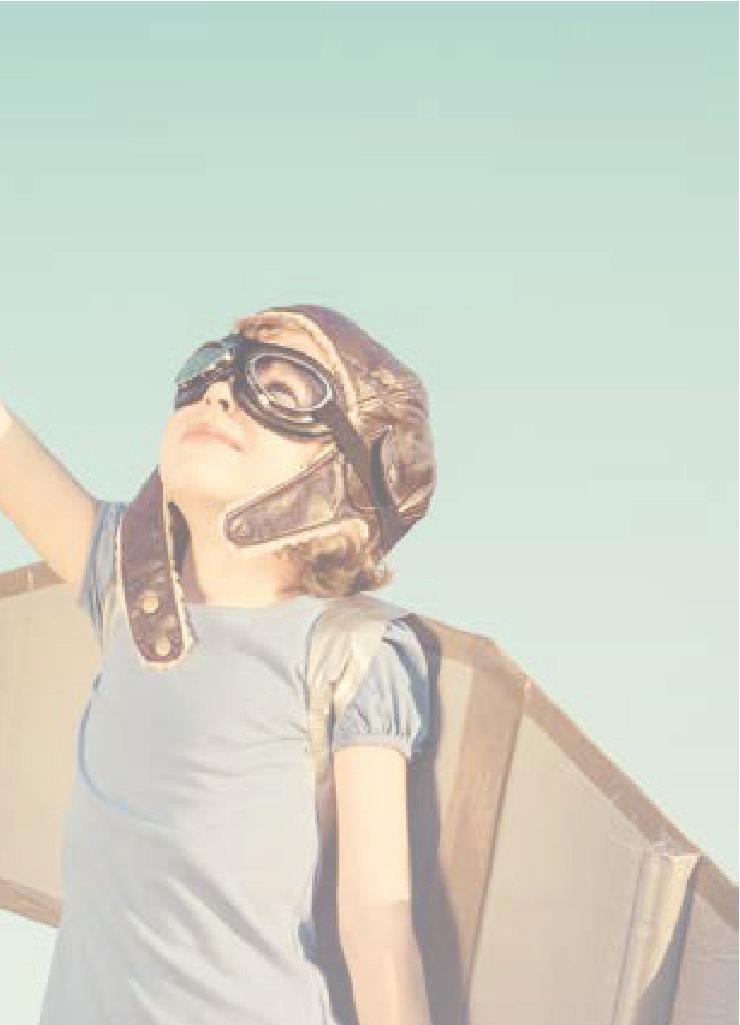
For more information visit AtlantaJewishFoundation.org or contact Ghila Sanders at gsanders@jewishatlanta.org.

be accessible."



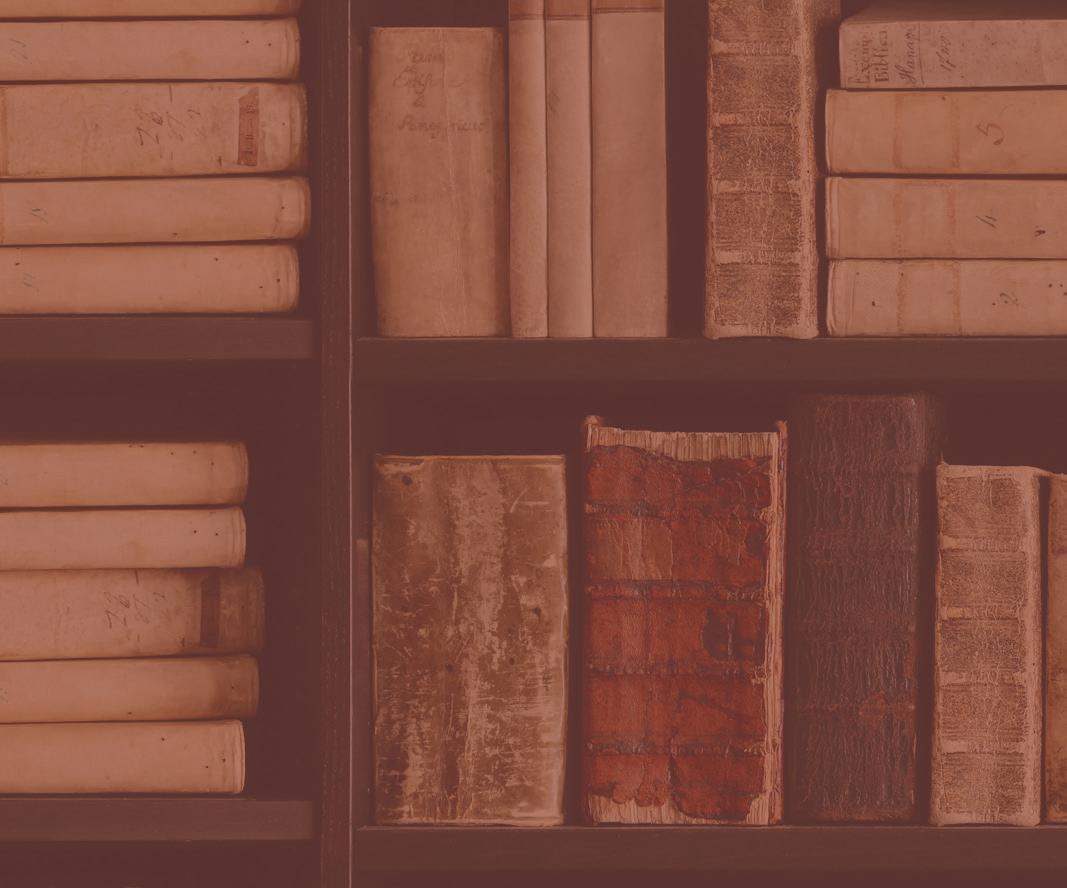





When Marc Lewyn’s father, Bert, passed away in 2016, and the family was observing shiva (the seven-day mourning period in Judaism), a friend asked somewhat bluntly, “How do you plan to permanently memorialize your father?”
The question stopped Marc in his tracks, not only because it came at a time of high emotion, but because Marc literally had never given it a thought. “As a professional wealth manager, I have conversations like this all the time with my clients about how to use philanthropy to lift up their highest values. Now this same important question was directed at me.”

“I not only wanted my father’s and family papers to be at Emory, I wanted them to
It was clear to Lewyn that his father had led a remarkable life. Bert Lewyn’s redemptive story of survival during the Holocaust was foundational to Marc’s sense of self. The harrowing story was told in full when Marc’s wife Bev, a professional researcher, helped her father-in-law organize his writings and publish a memoir, On the Run in Nazi Berlin, in 2001.
Marc Lewyn knew that Rabbi Tobias Geffen kept a daily diary. “Some days the entries were quite mundane, but many were powerful, like the sermon he wrote on the night of Pearl Harbor! Like a Forrest Gump of Jewish ATL, David’s diary was a rich chronicle of the American Jewish south. The Geffen family papers were already at Emory University. I began to see that my father’s life also had lessons for humanity. Donating my parents’ papers to Emory and amplifying David’s example seemed like a fitting memorial to them.”
At 18, Bert Lewyn and his parents were taken by the Gestapo and separated. Lewyn was sent to work in the Gustav Genschow and Co. Weapons Factory in Berlin. He later learned his parents died at a Polish concentration camp. Lewyn was enslaved at the factory until 1943 when, after a tip from a nonJewish worker, he eluded a roundup of Jews and spent the next several years hiding at the homes of friends and strangers. In 1945, he was captured and imprisoned in the former Jewish Hospital in Berlin. He and a group of prisoners managed to escape through a tunnel they accessed with a key Bert made from debris found after a bombing. He returned to the apartment of friends and remained there for several weeks until Russian soldiers raided the apartment, signaling the end of the war.
When Marc Lewyn toured the archives at Emory, he saw stacks of boxes, but many donations were uncatalogued. “I not only wanted my father’s and family papers to be at Emory, I wanted them to be accessible. That led to digitizing these documents so they could be available with just a click. David and I also wanted to encourage scholars to
Bert Lewyn’s ultimate rescue came in 1949 when his Atlanta relatives, Rabbi Tobias and Sarah Geffen, sponsored his immigration to America. At the time, Rabbi Geffen was the spiritual leader of Congregation Shearith Israel, famous not only for his prominence in the Atlanta Jewish community, but also for his famous rabbinic ruling that certified Coca Cola as kosher. The Geffens helped Bert rebuild his life and introduced him to his wife Esther. Lewyn went on to launch a successful business in Atlanta, was generous to his Jewish community, and perhaps most significanty, had children of his own, making it possible for future generations of Lewyns to come into the world.
L, Rabbi Tobias Geffen, Center, Louis Geffen and R, Bert Lewyn. Anna and Louis Geffen Papers, Stuart A. Rose Manuscript, Archives, and Rare Book Library, Emory University. have access to these papers through the creation of the Geffen and Lewyn Family Southern Jewish Collections Research Fellowship. It supports research in the Rose Library’s holdings, documenting Jewish life in Atlanta, Georgia, and the South. It encourages students, professors, scholars, and authors to research the rich history of Southern Jewish families, culture, businesses, activism, and politics.”

At a recent reception at Emory University celebrating the Geffen Lewyn Fellowship, David Geffen shared the story of how when Atlantan Lois Frank was an undergraduate at Emory, she invited Dr. Martin Luther King to come to campus and speak to a group of students. He had just won the Nobel Peace Prize.
“Lois drove over to Dr. King’s home in her VW Beetle and took him to campus. Nobody knew about it and there was no security— not even the Emory campus police were aware. The event went off without a hitch, but there is no account of the meeting anywhere except in the Emory student newspaper, The Wheel,” Rabbi Geffen said.
“It underscores the value of archival material for scholarship,” Marc Lewyn says. “Researchers wouldn’t know about Dr. King’s visit to Emory unless they delved deep. Neither The Atlanta Journal nor the Atlanta Constitution reported the story, but it lives at Emory. Stories, letters, and personal memoirs are more powerful than tax benefits. I wish more people would think about that when they think about what to do with their parents’ belongings. These are our treasures!”
It underscores the value of archival material for scholarship. Researchers wouldn't know about Dr. King's visit to Emory unless they delved deep.
“ „




If you’re speaking with someone in Atlanta’s disability community and you mention Sheryl Arno, their face will light up. Sheryl has been working in disability advocacy for over 30 years and has made a tremendous impact in the lives of thousands of people. And her advocacy began in, and is still inspired by, Jewish culture.
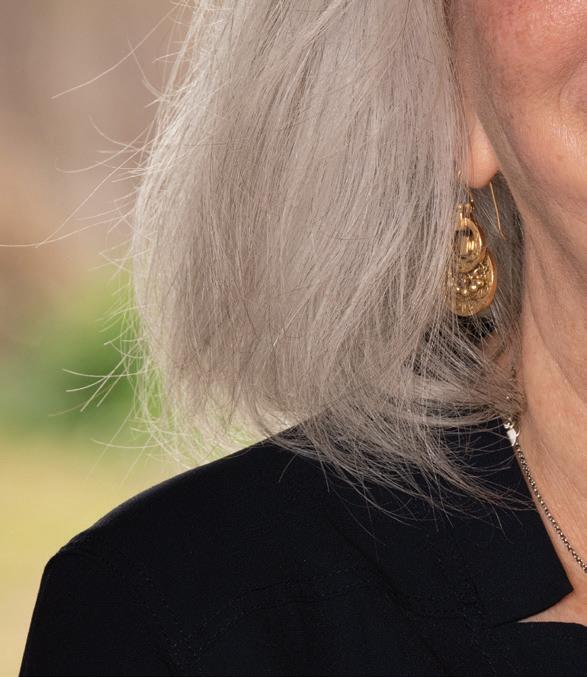
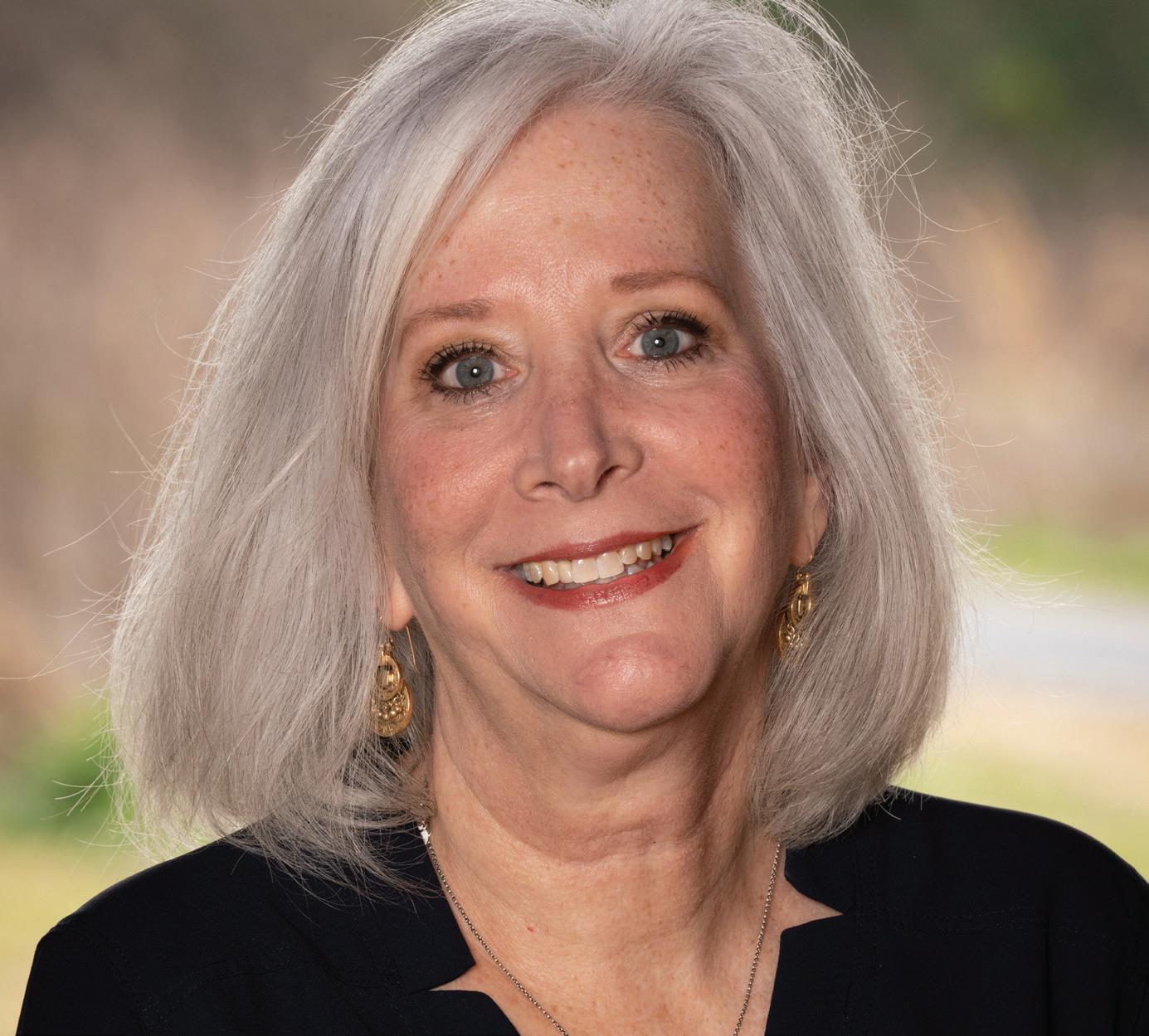
Sheryl built her career working in Jewish organizations. While she is now the Executive Director of the Down Syndrome Association of Atlanta (DSAA), a secular group, she says that she still draws on the lessons she learned as part of the Jewish community. “The Jewish community is unique in their support for people with disabilities,” Sheryl says, “We are a model for other faith-based organizations.”
In 2013, she saw firsthand how quickly the community could mobilize when The Amit Program closed. Amit was Atlanta’s centralized Jewish special education agency, which ran the Gar’inim School, learning support programs, a special needs Sunday School, a virtual parent support network,
The Jewish community is unique in their support for people with disabilities.Sheryl Arno's advocacy began in, and is still inspired by, Jewish culture.
professional development opportunities, consultation services, and more.
Without Amit, these programs were in danger, and the families and individuals they served would have been stranded.
Sheryl, who at the time was working as an independent consultant under the banner AbilityMatters, was asked by Jewish Federation of Greater Atlanta to join a Disability Task Force to fill the void left by Amit’s closure. Sheryl was chosen to be the first Co-Chairperson for the task force, alongside Amit board president Ina Enoch. Sheryl was impressed with how quickly Federation stepped in to fill the gap left by Amit’s closure.
“I’ve been working with Federation for many years, and I’ve never seen it respond so quickly to a need in the community,” she says. The Disability Task Force eventually became Jewish Abilities Atlanta (JAA), a targeted philanthropy within Federation that supports individuals with disabilities and their families.
In 2017, Sheryl became the Executive Director of the Down Syndrome Association of Atlanta (DSAA). DSAA provides resources and education for families and individuals and serves Georgians from Rome to Griffin to McDonough. DSAA services include
advocacy and running programs like the Hispanic Down Syndrome Association and Black Family Connections.
Sheryl says, “It is so important to create spaces where people feel included. Black Family Connections is only a year old but has already connected 150 families who did not previously know each other.”
She likens it to her work over the years with Jewish organizations and seeing the difference in people’s lives when “they can meet and share resources with people just like them who are having the same experiences.”
Now, Sheryl feels like she’s in a unique position to continue her advocacy work.
“I’m able to support people from both perspectives: as a layperson, and as an advocate within Jewish spaces.”
Amy Murphy is the current Manager for JAA. She says, “Sheryl has made tremendous contributions to the disability community and can often be found at The Capitol when the Georgia General Assembly is in session advocating for people with disabilities. She is well known with legislators and others in the field for her passion and commitment to the disability community.”
When asked what people can do to help those with disabilities, Sheryl says that the most valuable assets people can give are their understanding and empathy. “It doesn’t take money to change philosophical problems, and inclusion is philosophical,” she says.
DSAA, JAA, and other organizations need help with this psychological shift; it’s up to individuals to challenge the way things have always been done.
“Donations are important to keep our programs running, but it really isn’t about money. You don’t have to have money to make a difference. People feel like if they don’t have money, they can’t be of use, and that’s not true.”
Sheryl has certainly made a difference. Her decades of dedication have helped to make Atlanta more inclusive and accessible. There is still significant progress to be made toward making people with varying abilities feel welcome, but luckily for us, Sheryl isn’t slowing down anytime soon.
“I’M ABLE TO SUPPORT PEOPLE
FROM BOTH PERSPECTIVES: AS A LAYPERSON, AND AS AN ADVOCATE WITHIN JEWISH SPACES.”
It is so important to create spaces where people feel included.
“ „
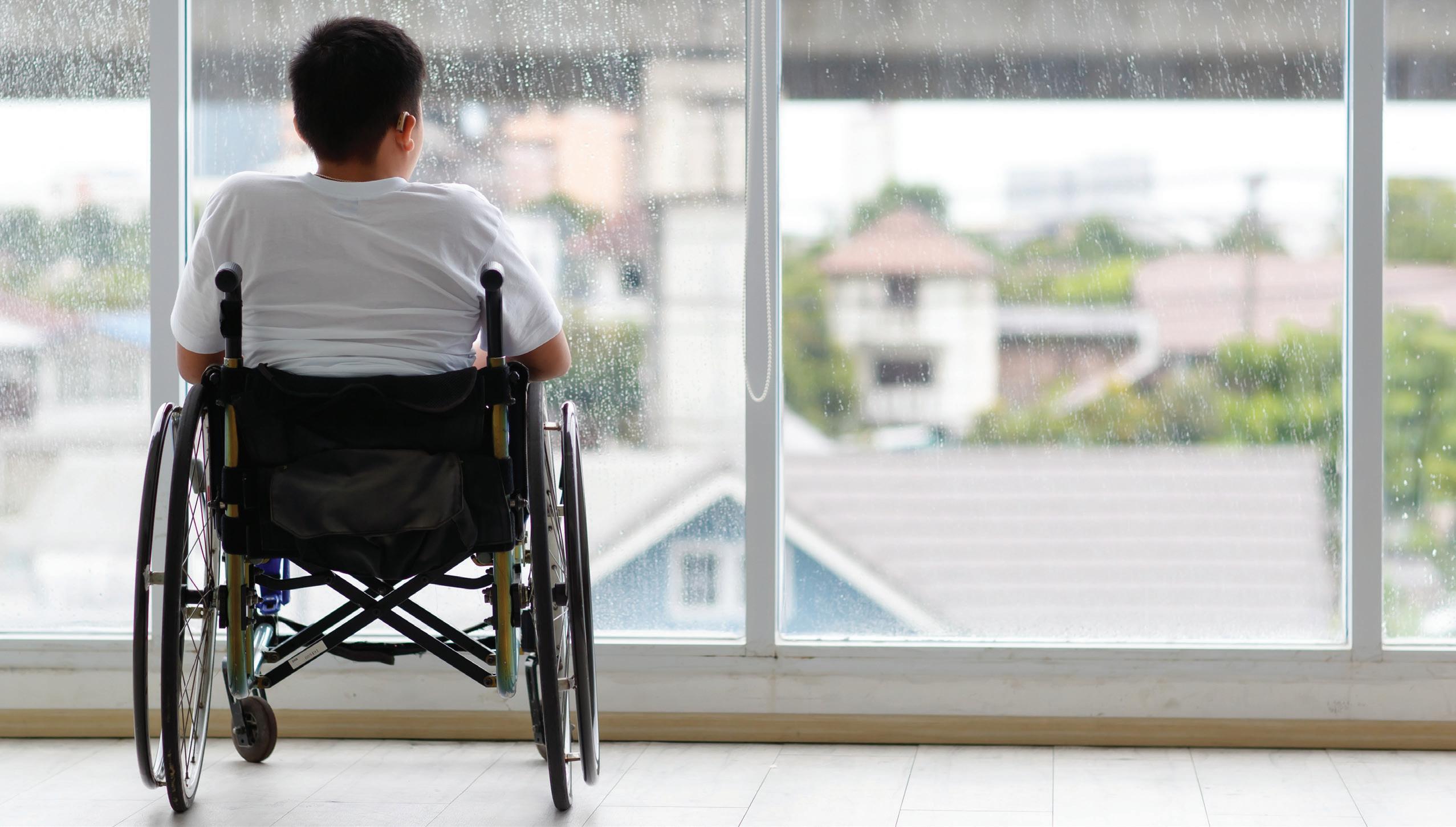
It doesn’t take money to change philosophical problems, and inclusion is philosophical.
“ „
If you would like to share a story of Generosity within Jewish ATL, please contact Galen Crawley at gcrawley@jewishatlanta.org
